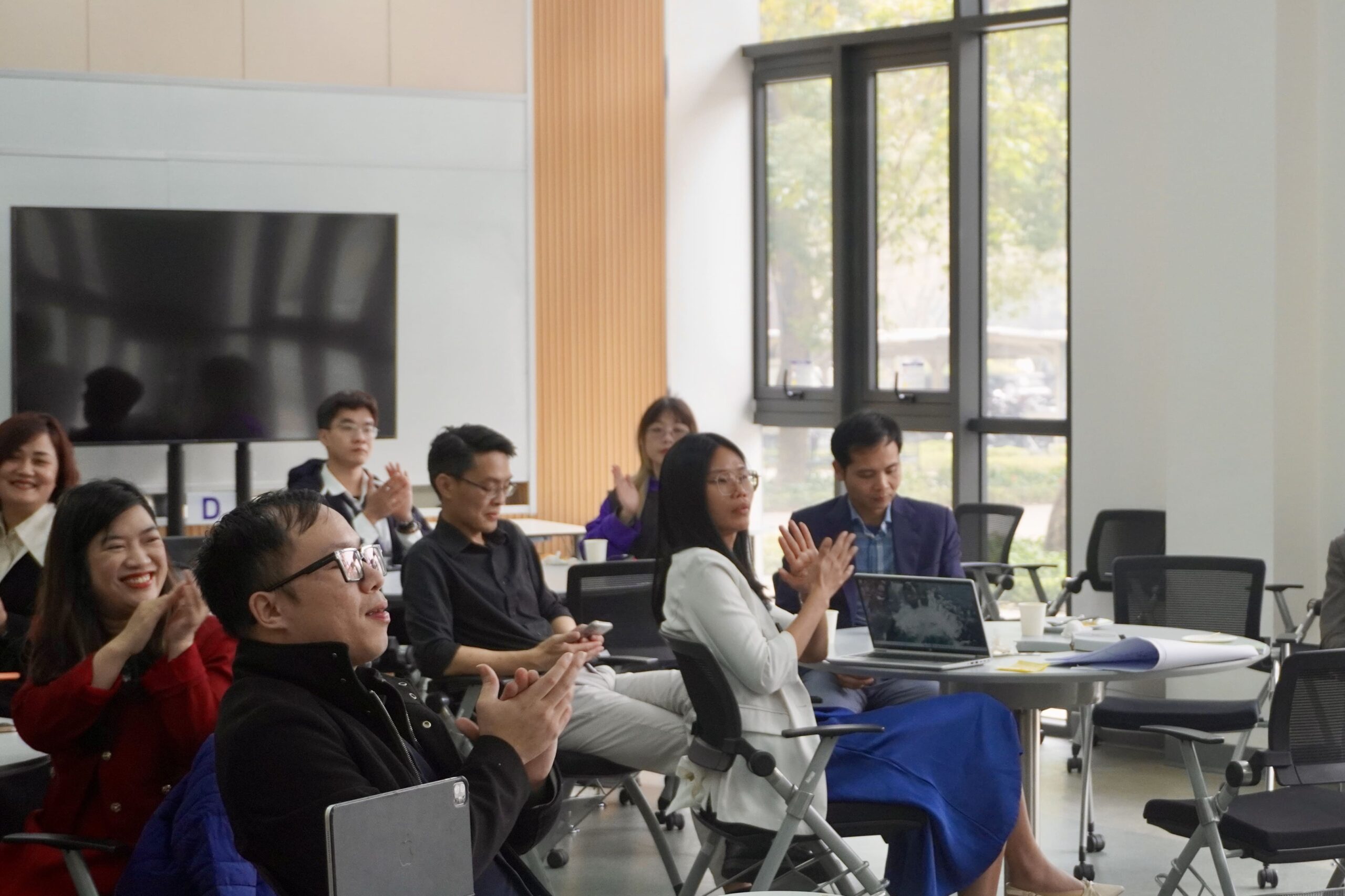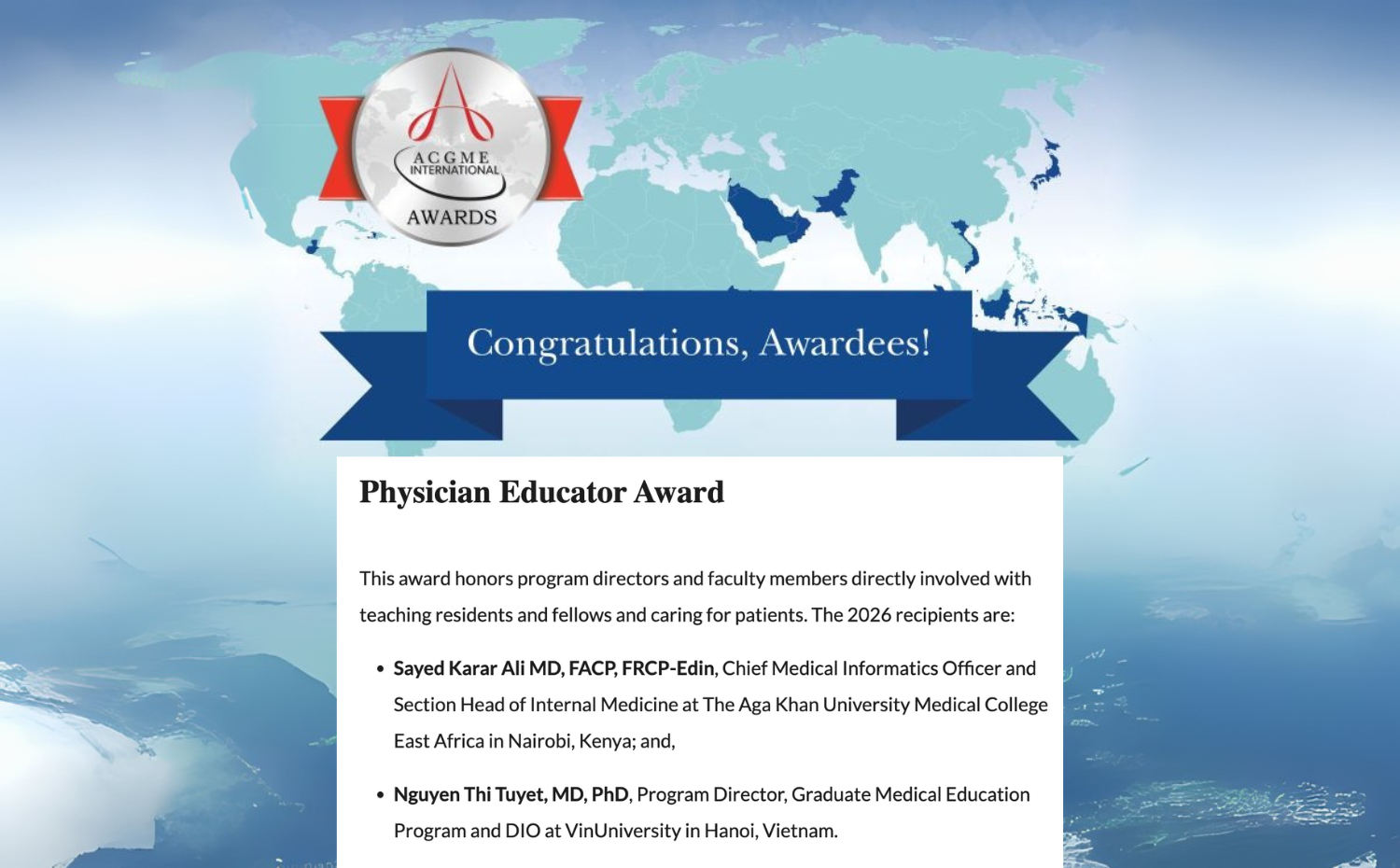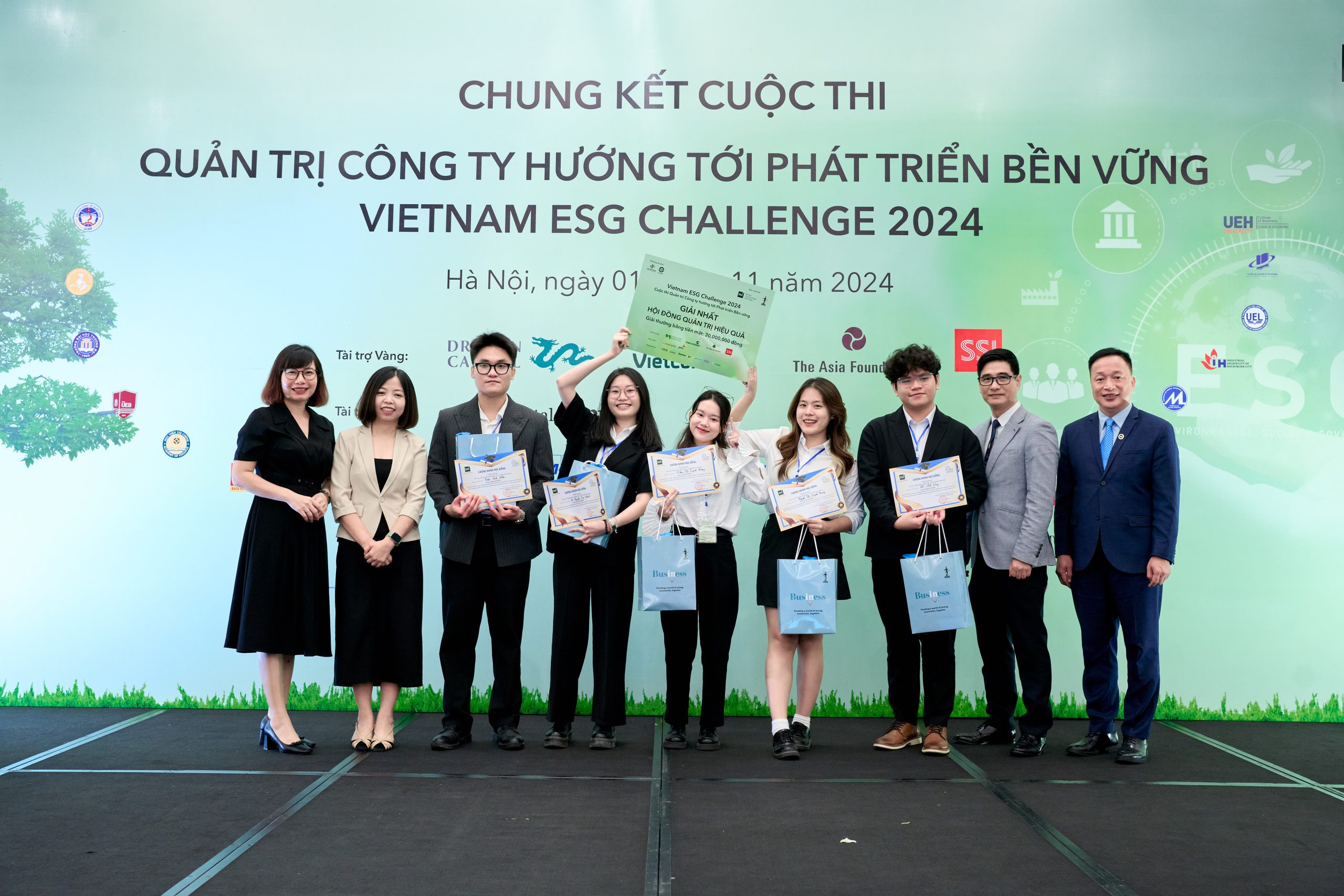On March 27, VinUni officially received the FIBAA Quality Seal from the FIBAA Accreditation and Certification Committee (Foundation for International Business Administration Accreditation), becoming the first university in Vietnam to excellently meet 100% of the FIBAA accreditation criteria just five years after its establishment. This accomplishment solidifies its position as a pioneer in the field of higher education with international standards.
After only 15 months of preparation and shortly after the graduation of its first student cohort, VinUni completed a comprehensive evaluation and successfully met the accreditation criteria set by the FIBAA Accreditation and Certification Committee. Notably, 40% of the criteria exceeded quality requirements, particularly in areas such as research, quality management, and strategic vision.
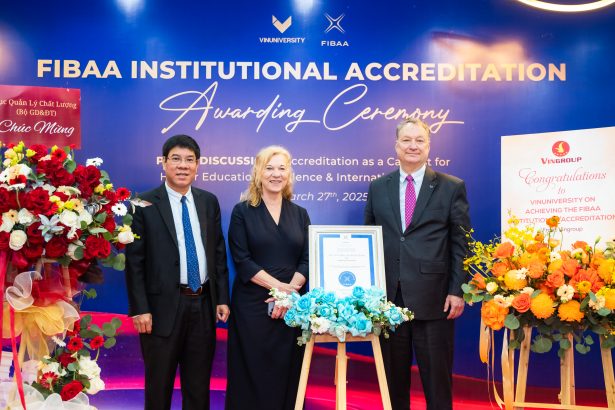
VinUniversity officially received the FIBAA Quality Seal from the FIBAA Accreditation and Certification Committee.
Regarding governance, the FIBAA assessment team praised not only VinUni’s strategy and continuous innovation spirit but also recognized the effectiveness, professionalism, and result-oriented approach of the university. VinUni has adopted a governance model combining academic freedom – the foundation for innovation in teaching and research – with result-oriented management, employing an operational style that mirrors that of leading businesses. VinUni is creating a competitive environment that adapts quickly to change, aligning with the “Agility” criterion in modern management, where units and individuals are encouraged to set high goals and continually innovate.
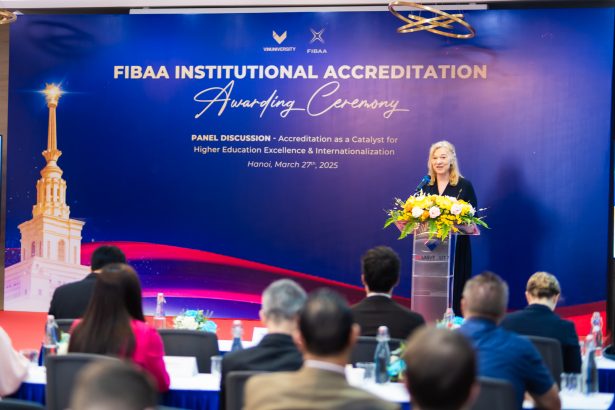
Mrs. Mag.a Diane Freiberger – Executive Director of the FIBAA Accreditation Organization, gave a congratulatory speech at the ceremony.
In her speech at the ceremony, Mrs. Mag.a Diane Freiberger, Executive Director of FIBAA, congratulated the university, stating: “With this accreditation, VinUni affirms its position as a university of the future, constantly pushing boundaries to set new standards. The accreditation process not only reflects the achievements made but also serves as a stepping stone for continuous innovation, improvement, and elevation of education quality.”
Moreover, FIBAA also commended VinUni’s vision and sustainable development strategy. Currently, VinUni focuses on developing core competencies in Artificial Intelligence and Data Science, aiming to create innovative products with practical value. The university also prioritizes interdisciplinary topics related to global and national challenges such as smart health, smart cities, combating climate change, green transformation, digital transformation, and sustainable development.
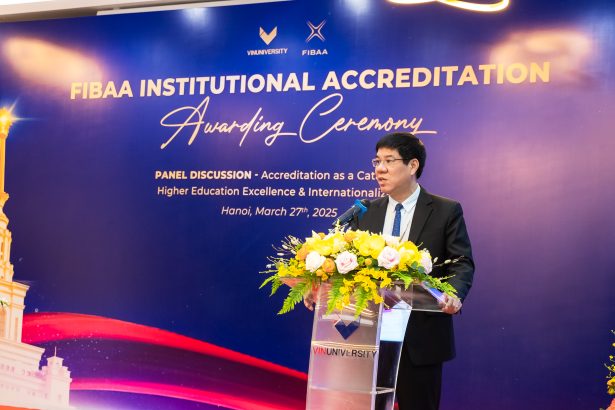
Mr. Huynh Van Chuong, Director General of the Department of Quality Management, affirmed during the ceremony that accreditation would be the foundation for universities, including VinUni, to reach international education standards.
With a focus on in-depth research, VinUni prioritizes developing its faculty from candidates who come from top 100 global universities with outstanding academic records. At the same time, the university simplifies administrative procedures and provides substantial internal research funding for faculty members with large-scale projects, alongside clear career progression based on academic results and contributions.
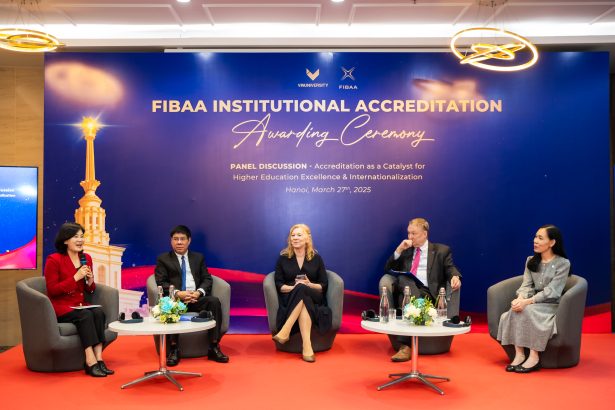
Panel Discussion – Accreditation as a Catalyst for Higher Education Excellence & Internationalization.
Notably, VinUni provides opportunities for faculty members to collaborate and work at partner research institutes and universities, while also expanding its electronic library system and international databases, facilitating sustainable academic cooperation and growth.
Achieving FIBAA accreditation after just five years of operation is a significant milestone, affirming VinUni’s relentless efforts to reach the pinnacle of education. This not only represents international recognition but also serves as a driving force for VinUni to continue innovating, enhancing teaching and research quality, with the goal of becoming one of the world’s top 100 universities.


